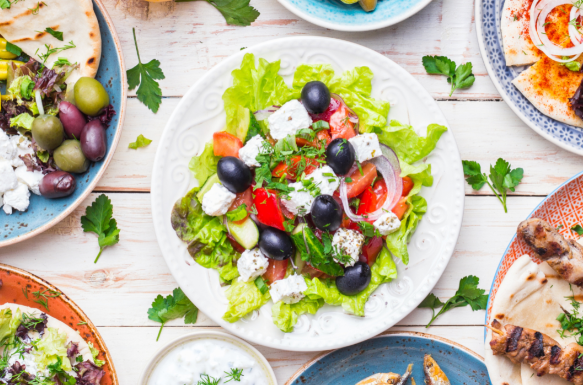Mastering Healthy Grilling and Barbeque Tips
Summer is synonymous with grilling and barbeque, but enjoying outdoor cooking shouldn’t compromise your health. This article offers practical healthy grilling tips for delicious barbecues without worrying about hidden health risks. Savor the flavor, fun, and peace of mind while prioritizing healthy cooking.
Food Safety First
Before perfecting those grill marks, prioritize food safety. According to the CDC, millions suffer food poisoning yearly, sometimes requiring hospitalization. Prevent cross-contamination. Use separate cutting boards for raw meats and other ingredients. Always serve food on clean plates.
Safe Handling Practices
Begin with clean hands and utensils. Keep perishable foods chilled before cooking.
Thoroughly cook meat using a food thermometer. Safe internal temperatures are 165°F for poultry and 160°F for ground beef.
Refrigerate leftovers promptly, especially on hot days. Checking food before serving enhances safety and turns potential hazards into happy moments.
READ MORE : Wings Menu CanadA
Mastering Healthy Grilling Tips
Healthy barbeque meat involves understanding the right temperature, choosing between high heat searing and low and slow cooking, and recognizing when flames negatively impact food. It’s more complex than many realize.
Minimizing Cancer Risks from Grilling
Grilling’s smoky char carries potential risks due to HCAs (heterocyclic amines) and PAHs (polycyclic aromatic hydrocarbons). These form when meat proteins encounter high heat and flames.
While many studies link frequent charred, well-done meat consumption to increased cancer risks, your next healthy BBQ won’t automatically be unhealthy. Implementing healthy grilling tips makes a difference. Consider grilling fish fillets as a healthy alternative.
Temperature Tweaks and Techniques
Simple adjustments promote healthy grilling. Reduce flare-ups by trimming visible fat and minimizing dripping meat juices.
Place pierced foil underneath, slightly raise the grill’s surface, or adjust briquette placement to reduce direct flame contact. Lower the heat on your gas grill or let charcoals ash over.
Cover food to prevent bugs and contamination. A grill basket can keep smaller food items from falling through the grates.
Marinades: Your Flavorful Shield
Marinades enhance flavor and offer health benefits. NYUH recommends a pre-grill soak or rub for healthier barbequing, suggesting to “Give it a soak or a rub“.
Microwave meat briefly and pat it dry before grilling to reduce HCAs. Turn food frequently during cooking, about every minute, to minimize HCA formation. This ensures even cooking and adds a layer of cancer protection.
A simple marinade can go a long way towards enhancing the grilled flavor. Using a store-bought barbecue sauce isn’t always the best route. Look for sauces with less sugar and saturated fat for healthier grilling.
Embracing Healthy Alternatives and Sides
Healthy grilling goes beyond minimizing HCAs. It’s about choosing healthy ingredients and making smart food choices. Eating healthy can involve a simple green salad as a side.
Going Beyond the Usual Suspects
Opt for skinless chicken breast, turkey burgers, chicken kebabs, or fish instead of fatty meats for lighter, heart-healthy meals rich in omega-3 fatty acids. Leaner proteins reduce flames, minimizing the amount of fat drips and potential carcinogens.
Grill colorful veggies and fruit alongside meats. Asparagus, eggplant, watermelon slices, and peach halves are delicious grilled.
Grilled veggies offer nutrients, fewer calories, and variety. HCAs don’t form on them, making them a healthy grilling staple. Enjoy grilled kebabs that alternate chicken and fresh vegetables for a balanced approach. Raw, cooked or marinated vegetables add to healthy barbecues.
Whole Grains and Healthy Sides
Healthy barbecues can be derailed by starchy, fat-filled sides. For nutritious sides, skip processed foods.
Make homemade potato salad or cole slaw with Greek yogurt or vinaigrette instead of mayonnaise. Include a fresh fruit salad as another healthy alternative. NYUH recommends “choose healthier sides” for healthy grilling and barbequing.
Whole grains are important to stay healthy too. Pair grilled veggies, chicken, or fish with whole grains for a nutritionally sound meal.
Recipes and Guides
For more healthy grilling tips and recipes, explore resources from the American Heart Association. Look for ways to add color and variety with each grilled dish you make.
You can add spices like garlic powder and chili powder when grilling too, enhancing the taste even more, especially with skinless chicken and lean ground turkey.
Implementing better techniques contributes to a healthy BBQ. Use a grill pan inside for items you’d rather not directly expose to an open flame.
When cleaning, never use a wire brush since stray bristles can end up in food. Soak grill grates in soapy water, scrub, and rinse clean to remove food stuck on the grill surface. Paper towels can be used for wiping leftover burnt pieces.
Healthy grilling isn’t just about what happens *on* the grill but *what you put there*. Prioritize food safety when using grilling tips. Choose lean proteins, grilled veggies, and whole grains for healthy meals.
With smart planning, your cookouts will sizzle without health risks. Remember, small changes yield significant health benefits. Grilled veggies and fish fillets provide delicious, nutrient rich healthy grilling alternatives.





